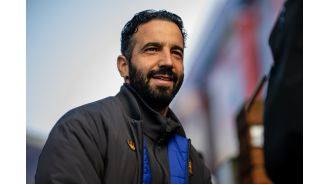Broken records
It’s that time of year where we see broken records. The kind of records we don’t want broken.
Deadhorse, Alaska saw a record of 31.7 degrees this week. The average over the past 55 years was ~9 degrees.

The Great Barrier Reef in Australia saw 400 year old temperature records broken. When that happens, those incredibly colorful corals “bleach” and become a ghostly white. If these trends continue, we won’t have a Great Barrier Reef in 20-30 years. Just as likely is an ice-free arctic region.

It is easy to get pessimistic when we see all this. That is especially in the case during a big election year around the world. A large chunk of the world’s population is casting votes and electing leaders. Many of these leaders still walk around denying or minimizing anthropogenic (i.e., human created) climate change because it suits their personal interests. Such lying is abhorrent – but, sadly, politics and lying go together. It is just a question of degrees.
While we’re likely to have a collection these leaders elected around the world (balance of probability), we’re approaching the point where myopic policies will have a smaller and smaller impact on the rapid decarbonization of the economy.
This graph looks at energy costs in Germany. It doesn’t make sense to run systems based on coal and natural gas. The combination of solar and batteries is cheaper.

Lithium battery pack costs continue to plummet. This is even as we continue to find other non-rare earth mineral alternatives such as solid state and sodium ion batteries.

We don’t need to pick decarbonization because it is the right thing to do anymore. We can choose it because it is simply better and cheaper.
LED bulbs are cheaper and better than their predecessors.
Electric cars are cheaper over their lifetime and are a no brainer for folks with shorter commutes. But, more importantly, they’re smoother, require less maintenance, and a pleasure to drive.
Heat pumps are cheaper to operate than traditional boilers/air conditioning systems.
Geothermal heat systems are continuing to make progress – things are beginning to look very promising.
We still need technology to replace plastic. We haven’t cracked that. Plastic recycling is an illusion – the only real solution for the medium term is to ban single use plastic.
It isn’t clear if we’ll get to fusion. But it is a bet worth taking even as progress on solar and batteries continue to defy expectations.
We could all do more in our own lives – eating less red meat alone has an impact. But I think the highest leverage thing we can do is push for better understanding of the costs of decarbonization.
In most places around the world, the right option is also the cheap option. And it is getting cheaper by the day. That understanding will result in all of us pushing for the kind of systemic change that counts.
Climate change is a reality. We aren’t going to escape the consequences of a hundred fifty years of burning fossil fuels. However, fossil fuels are, at best a transition state for humanity. As Prof Deb Chachra lays out in her book about infrastructure, even if we use <1% of the energy from the sun, we could comfortably meet all of humanity’s energy needs.
Our energy future is shaping up to be more abundant, more decentralized, and more resilient.
So it is important to stay optimistic that we’ll escape the worst-case scenario… and, hopefully, just hopefully, we’ll give nature the opportunity bounce back.
If Chernobyl’s example is anything to go by, we have reasons to stay hopeful.






